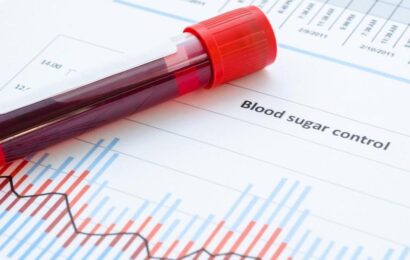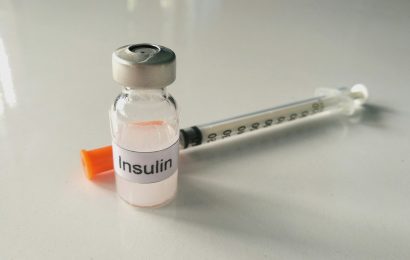Autumn is here, and shorter, cooler days are just around the corner. Everyone is back to work or school and the hectic pace is back in full swing. It’s normal to feel a little down or sad, knowing that summer is behind you. But if you’ve been feeling this way for a while and you can’t seem to shake it off (as Taylor Swift likes to sing), maybe something a little deeper and more serious is going on.
The link between diabetes and depression
According to research, people who have diabetes are about two to three times more likely to have depression than people without diabetes. While depression can affect people with Type 1 or Type 2 diabetes, those with Type 2 are more likely to develop it. Of course, having diabetes doesn’t mean you’re headed for depression, but the likelihood is higher.
Interestingly, not only does having diabetes increase the risk of depression, but being depressed increases the risk of diabetes. In a 10-year study, women who took antidepressants were 25% more likely to develop diabetes than women who were not depressed. Also, women who took insulin were 53% more likely develop depression.
What accounts for this connection? It’s possible that changes in the brain can raise the risk of depression. Blocked blood vessels or nerve damage from having diabetes may alter brain chemistry, thus raising the risk of depression. Other factors can help explain the link:
• Dealing with a chronic condition day in and day out can cause a great deal of stress and anxiety.
• Unmanaged blood sugars (meaning, a lot of highs and lows) can be challenging and can make it harder to cope with diabetes.
• Being diagnosed with diabetes complications, such as heart disease or kidney disease, for example, can trigger or worsen symptoms of depression.
• Frequent high blood sugars can prevent you from thinking clearly, can affect your mood, and can affect how you care for yourself.
Are you depressed?
In this day and age, it’s hard to believe that anything is off-limits for discussion. Yet, depression and other mental health disorders still remain somewhat of a stigma in our society. Although progress has been made, mental illness, in many people’s minds, seems somewhat of a weakness in character, rather than an illness such as cancer, diabetes or heart disease. Traditionally, our society has encouraged anyone who is feeling down or sad to “buck up” or “snap out of it.” As a result, people who are depressed may be in denial about their condition or chalk up their symptoms to other factors, such as stress at work, and not seek help.
It’s normal to go through periods of feeling a bit down, blue, or sad. We wouldn’t be human if we didn’t feel this way at times. However, if these symptoms linger for a few weeks or longer, it’s time to pay attention. Not sure if you’re depressed? Here are common symptoms:
• Loss of pleasure in activities that you used to enjoy
• Sleeping too much or too little
• A change in appetite — either no appetite or eating in excess
• Aches, pains, or cramps that don’t go away
• Being unable to concentrate or pay attention
• Loss of energy; feeling lethargic all the time
• Feeling anxious or nervous
• Feeling hopeless or pessimistic
• Frequently feeling sad, especially in the morning
• Feeling like you can’t do anything right; feeling worthless
• Feeling like you’re alone
• Having thoughts of death or suicide
Having any of these symptoms doesn’t necessarily mean that you’re depressed, but it does mean that it’s time to seek medical help, especially if you have two or more of these symptoms, or even one of these symptoms that has been lingering for a while. Sadly, about half of people who have depression never get it diagnosed and treated.
Treating depression
There’s no one test that your doctor can use to diagnose depression. But doing a physical exam, asking you about your symptoms, and obtaining a past medical history are crucial. In addition, your doctor should take into consideration your diabetes management and presence of any complications to help rule out physical causes of your symptoms. There are different ways to treat depression, and often, a combination of these is what works best for many people.
Counseling (psychotherapy): Counseling might conjure up images of lying on a couch with a doctor who looks a lot like Sigmund Freud sitting behind you, taking notes. Some people may lie on a couch, but that doesn’t mean you need to. Counseling, or “talk therapy,” might consist of cognitive-behavioral therapy, which looks at how your thought patterns affect your mood, or interpersonal therapy, which focuses on how you interact with others and how you can improve relationships. Therapy should also focus on promoting problem solving skills. Your therapist might be a social worker, a psychologist, or a psychiatrist. You might also benefit from group therapy sessions. What’s most important is that you feel comfortable with your therapist; having a good rapport is crucial for success.
Medication: Taking an antidepressant medication can be helpful. There are several types of antidepressants, including selective serotonin reuptake inhibitors (SSRIs), such as sertraline (brand name Zoloft) and fluoxetine (Prozac, Sarafem), and serotonin norepinephrine reuptake inhibitors (SNRIs), such as duloxetine (Cymbalta) and desvenlafaxine (Pristiq, Khedezla). These drugs help to balance chemicals in the brain called neurotransmitters. While medication can be very effective, keep in mind that they have side effects, including nausea, nervousness, trouble sleeping, drowsiness, constipation, and weight gain (making it more challenging to manage blood sugars). However, also keep in mind that you may not have side effects from any of these medications. And don’t be too quick to write off taking medication if you’re depressed: The good news is that research shows that people who have both diabetes and depression and who take an antidepressant have better blood sugar control than those not taking medication.
Lifestyle measures: If you’re depressed, the last think you might feel like doing is getting up and doing some type of physical activity. But being active is a proven way to help boost mood and ease symptoms of depression. Physical activity may even help prevent depression, too. A new study published in The American Journal of Psychiatry found that people who didn’t exercise were 44% more likely to become depressed compared to those who exercised at least one hour per week. Eating healthy foods can help ease symptoms of depression, as well. Focus on choosing healthful carb foods rather than sugary, processed carbs; fitting in omega-3 fatty acids from fatty fish, walnuts, flaxeed, and pumpkin seeds; getting your daily dose of vitamin D from fatty fish, fortified milk and yogurt, or a supplement; and also eating foods rich in folate if you take an antidepressant. Sources of folate include broccoli, asparagus, spinach, avocado, eggs, and fortified cereals.
Diabetes self-management education: Signing up for a diabetes education program or meeting with a diabetes educator can also do you a world of good, especially if you’re struggling to make sense of your blood sugars. Learning how to manage your nutrition, physical activity, and diabetes medications can help you even out your blood sugars; this, in turn, may help alleviate some of your symptoms of depression. Check out programs in your community or ask your doctor for a referral to a diabetes educator. Also, look into diabetes support groups, either in your town or online.
Want to learn more about maintaining your mental health with diabetes? Read “Reducing Diabetes Stress: Alternative Treatments” and “Relaxation Techniques for Stressful Times.”





